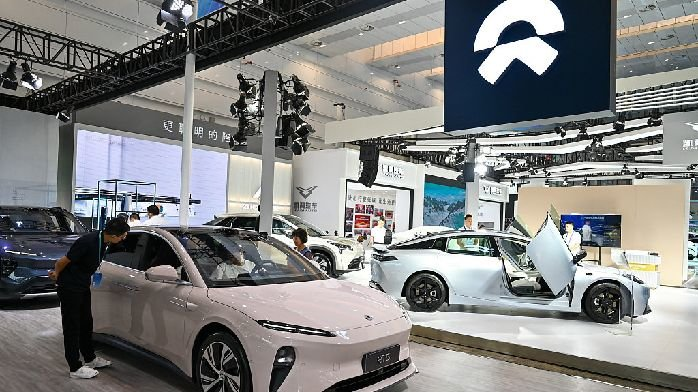Singapore’s sovereign wealth fund GIC sues Nio
GIC, the Singaporean sovereign wealth fund, which is the world’s sixth-largest sovereign wealth fund, has filed a lawsuit against Chinese electric vehicle manufacturer Nio and its executives in a US court.
The lawsuit alleges securities fraud, marking the first instance of a sovereign wealth fund suing a Chinese company listed overseas, as reported by Chinese media outlet Caixin.
The lawsuit, filed by the Singapore Government Investment Corporation (GIC), names Nio, its CEO William Li, and former CFO Feng Wei as defendants.
According to XiakeAuto, GIC’s central accusation is that Nio, through its battery asset company “Nio Battery Asset Co. Ltd.” (hereinafter referred to as “Weineng”), established with partners like CATL, allegedly inflated its revenue and profits. The fund claims Nio concealed its actual control over Weineng, thereby misleading investors and causing GIC to suffer investment losses.
The core of GIC’s lawsuit revolves around Nio’s alleged manipulation of financial statements through Weineng. GIC claims Nio used Weineng to inflate revenue and profits by prematurely recognising battery sales revenue and obscuring its actual control over the entity.
The controversy centres on Nio’s unique “battery swap + battery rental” model, known as BaaS (Battery-as-a-Service). In this model, users can purchase a vehicle without the battery, renting the battery from Weineng instead. The crucial point is that Nio recognised the entire battery sales revenue upfront when selling batteries to Weineng.
The dispute hinges on whether, under US accounting standards, this revenue should be recognised incrementally as users pay monthly rental fees, or if it can be recognised immediately because the batteries were “sold” to Weineng.
GIC’s lawsuit alleges that Nio established Weineng in August 2020 specifically to “optimise” its financial reports. This manoeuvre allowed Nio to immediately recognise substantial revenue while moving battery depreciation costs off its balance sheet. The effect was immediate: Nio’s Q4 2020 revenue doubled year-over-year, from 2.85 billion yuan (399 million USD) to 6.64 billion yuan (930 million USD).
GIC argues that if revenue had been recognised incrementally, as they believe is compliant, Nio’s performance at the time would have been significantly lower, and its stock price would not have surged to an all-time high of 62 USD in early 2021.
Nio, in turn, asserts that control over the batteries was transferred upon sale to Weineng, and its “performance obligations” were fulfilled, thus justifying the upfront revenue recognition. These revenues were recorded as vehicle sales revenue and disclosed as related-party transactions in financial reports.
Another major point of contention in the case is the extent of Nio’s control over Weineng, which involves the complex determination of a “Variable Interest Entity” (VIE).
GIC alleges that Weineng is not an independent company but rather a “shell” entity substantially controlled by Nio. If this claim holds, Nio would be required to consolidate Weineng’s financial data into its own reports, rendering the previous upfront revenue recognition invalid.
GIC provides several pieces of evidence:
- Intricate Equity Structure: After a capital increase in August 2021, Nio held 19.84% of Weineng’s shares, just below the 20% threshold that could trigger a presumption of control. GIC suggests this demonstrates Nio’s familiarity with and intent to circumvent regulations.
- Significant Actual Economic Interest: GIC claims that through accounts receivable and guarantees, Nio’s actual economic interest in Weineng amounted to 55%.
- Lack of Business Autonomy: Weineng’s entire business operations are dependent on Nio. The types, quantities, and even rental prices of batteries are determined by Nio. Battery operations, maintenance, and user billing are also handled by Nio or its subsidiaries.
Currently, the GIC lawsuit against Nio has been temporarily stayed by the court in early October 2025, pending the outcome of a prior class-action lawsuit filed by US investors.
About GIC
Established in 1981, GIC is one of Singapore’s three key sovereign investment entities, alongside Temasek Holdings and the Monetary Authority of Singapore, tasked with managing the nation’s foreign reserves and fiscal surpluses. GIC’s stated mission is to achieve “long-term returns above global inflation at acceptable risk.” Its latest annual report indicates that equities comprise 51% of its investment portfolio, underscoring why the performance of Chinese stocks directly impacts GIC’s returns.
Update Oct 17th 22:00 Beijing time: Nio responded to the lawsuit.




